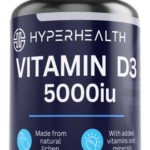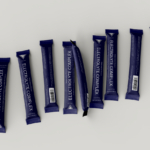Free Shipping
On all orders over £50.00
On all orders over £50.00
Achieving peak health, particularly during intermittent fasting, hinges on the importance of replenishing key electrolyte minerals that may be deleted during fasting periods. Ensuring adequate intake of electrolytes during fasting helps maintain stable blood sugar levels, supports kidney function and muscle function for exercise performance and recovery. Moreover, electrolytes play a crucial role in regulating body temperature and promoting efficient digestion. Make prioritising electrolyte intake a cornerstone of your overall well-being strategy during intermittent fasting.
Beyond fortifying bones and teeth, calcium regulates muscles, transmits nerve signals, and influences heart rhythm. Imbalances in blood calcium levels can manifest in diverse symptoms across bodily systems.
Sodium plays a critical role in cellular fluid balance and facilitates nutrient absorption. Zinc regulates water balance in cells and tissues, contributing to electrolyte concentration maintenance.
Potassium plays a crucial role in preserving balanced fluid levels within and outside cells, supporting optimal muscle and nerve function. Potassium is also vital for the synthesis of proteins and the metabolism of carbohydrates.
Magnesium facilitates cellular energy production by aiding in nutrient transformation. Essential for optimal functioning of the brain and muscles.
I take my electrolyte shots with me on my business trips. I take mine on the flight with a 500ml bottle of water and in the morning before my busy day starts. Keeps my energy levels up.
It tastes really nice. In the morning after my workout I add the powder shot to a pint of cold water and sip the drink. It’s such an easy way to keep me healthy and hydrated at the same time.
I like the watermelon flavour and helps me maintain my energy and keeps my food cravings at bay during my 10 hour fasting periods.
At myDNAhealth, our mission is to develop cutting-edge, top-quality products that significantly enhance your well-being. That’s why we confidently offer our 60-Day ‘Experience Bliss or It’s On Us’ Guarantee.
Should you feel that our products haven’t made a notable improvement in your overall well-being, you are entitled to a full refund — no matter how much of the product is left. Simply make your decision within the generous 60-day window.
Need assistance or have questions? Our friendly team is ready to help! Contact us at [email protected] or call us at 01603 336315.
We have answered the most frequently asked questions below. If you can’t find an answer here then send us your questions in the form below
What are electrolytes and why are they important?
Electrolytes are minerals that carry an electric charge and are found in your blood, urine, and body fluids. They are crucial for many bodily functions, including regulating nerve and muscle function, hydrating the body, balancing blood acidity and pressure, and helping rebuild damaged tissues. Common electrolytes include sodium, potassium, calcium, and magnesium.
How do electrolytes help with hydration?
Electrolytes help maintain the body’s fluid balance by regulating the movement of water in and out of cells. When you sweat, you lose both water and electrolytes, and drinking fluids with electrolytes can help replenish these losses more effectively than plain water, ensuring better hydration and preventing dehydration.
Can drinking electrolytes improve athletic performance?
Yes, drinking electrolytes can improve athletic performance by preventing dehydration, reducing muscle cramps, and maintaining energy levels. Proper electrolyte balance helps muscles contract efficiently and reduces fatigue, which can enhance endurance and overall performance during exercise or sports.
Are there any health benefits to drinking electrolytes outside of physical activity?
Yes, drinking electrolytes can be beneficial even outside of physical activity. They can help alleviate symptoms of dehydration caused by illness, travel, or heat exposure. Electrolytes are also important for maintaining overall fluid balance, preventing muscle cramps, and supporting normal nerve function.
How much electrolyte intake is recommended?
The recommended intake of electrolytes varies depending on factors such as age, gender, activity level, and overall health. Generally, it’s important to consume a balanced diet that includes electrolyte-rich foods and beverages. During intense physical activity or in hot weather, you may need additional electrolyte intake to compensate for losses through sweat. It’s best to consult with a healthcare professional for personalized recommendations.
Can you drink water during intermittent fasting?
In the fasting window, the main goal is to limit calorie intake, enabling the body to use its stored energy reserves. This involves abstaining from significant calorie sources like proteins, carbohydrates, and fats in food and beverages. Notably, water, being a zero-calorie beverage devoid of macronutrients, doesn’t interfere with the fasting state or compromise the potential benefits of intermittent fasting.
Please send us your question and we will respond as quick as we can

 Electrolyte Complex – 1 month
Electrolyte Complex – 1 month